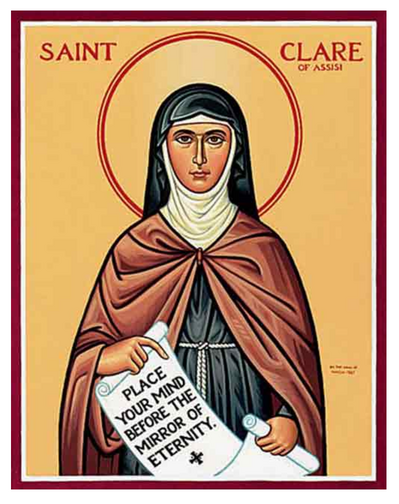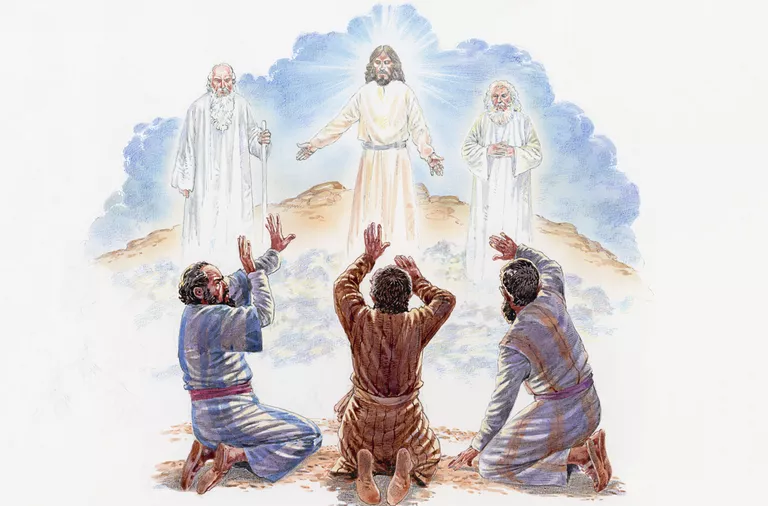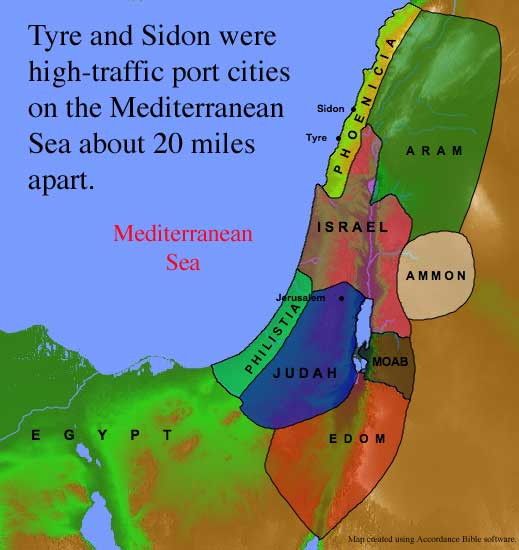Link to today’s Mass Readings: Monday of the Twenty-first Week in Ordinary Time | USCCB
Today in our First Reading we start making our way through St Paul’s First Letter to the Thessalonians. 1st Thessalonians is the earliest text we have in the New Testament, written around 49-51c.e. In Paul’s later writings, e.g., Romans, Corinthians, we find a much more developed theology, but here we find Paul being more pastoral or personal in style and language. It is written at a time only 15-16 yrs after the death and resurrection of Jesus, when there still would have been members of Christian communities alive who actually accompanied Jesus on his journeys, who mourned his death as the death of someone they had sat at table with, and who celebrated his resurrection as the return of one with whom they had walked the roads of Israel.
While, as I mentioned, the majority of the letter is pastoral or personal in nature, we do find in its final chapters some ‘theologizing’. In 1Thess 4:13-18 we find Paul speaking to the community at Thessalonica about those ‘who have fallen asleep’; this was a Greek euphemism for those who had died. The early Church, as we do, waited in hope for the Second Coming of Jesus, but where we are more resigned to it possible being ‘some way off yet’, for the early Church it was unclear. He – Jesus – said he would return, but was it meant to be next week, next month, next year…the community was unclear. At the time of this letter’s writing, people (including those who had known the early Jesus) had started to die, and so the community was left with the question: What happens to these people, will they too be gathered up by the Lord? In Paul’s response we have an example of the early Church ‘doing’ theology, that is, applying the experience of the Christ-Event to their present-day life. I love reading or listening to this passage from 1st Thessalonians as it is such a powerful example of the dynamic of reality of the Christ-Event in dialogue with the questions of our lives. (NB: Keep your ‘eyes open’ and your ‘ears peeled’ on Monday of next week, as 1 Thess 4:13-18 is the First Reading that day!)
In today’s First Reading we find this lovely greeting to the people of Thessalonica: ‘We give thanks to God always for all of you, remembering you in our prayers, unceasingly calling to mind your work of faith and labour of love and endurance in hope of our Lord Jesus Christ, before our God and Father, knowing, brothers and sisters loved by God, how you were chosen.’ Imagine if this was the spirit with which we all greeted each other as we gathered for the celebration of the Eucharist[1], or as a family as we sat down to enjoy a meal together, or if this is how schools started their day. Do our faces actually radiate some joy as we greet the brothers and sisters we have, by virtue of baptism, in the Lord.
[1] Whenever it is that we can start gathering again.
The Alleluia Verse from today’s readings:
Alleluia, alleluia.
Receive the word of God, not as the word of men,
but, as it truly is, the word of God.
Alleluia, alleluia.
This is such a great call to attend to the Word for what it is – the Word of God – and therefore be subject to it, rather than it subject to us.
I remember some years ago, about twenty probably, chatting with some Religious Education teaching colleagues who were horrified at my comment that: “No, I don’t think it’s appropriate to use something from Anthony De Mello’s book The Prayer of the Frog as an alternative to scripture for the First Reading at Mass”. The response of “You can’t seriously suggest that poetry or some other piece of meaningful literature can’t be used in this place” was met with “No!” Doesn’t this conversation illustrate for us the need to understand and appreciate the Word for what it is: the Word of God! Our Alleluia verse asks us to do this.
In a couple of schools where I was the Religious Education Coordinator/Director of Religious Education, I tried (mostly with a great lack of success and against some strong opposition) to encourage staff to use the ‘readings of the day’ or prayers from the ‘Mass of the day’ for the times that we prayed together. Among the arguments I used to support this approach, apart from that it would allow us to join in harmony with the rest of the praying Church, was that it is vitally important for a Christian to be formed by the Word of God rather than employing the Word of God to make a point. When we always pick readings to suit a ‘theme’, or select a prayer or reading that ‘says something nice’, then we limit the Word’s capacity to form us, and as a consequence will never grow in the Christian life.
There is great merit in placing ourselves in the presence of the Word across the liturgical year, rather than placing the Word at our disposal across the less ordered nature of our years. To do the former is to let God be God in our lives, while the latter tells God who we’d like God to be.
11th August – The Memorial of St Clare
Link to today’s readings: https://bible.usccb.org/bible/readings/0811-memorial-saintclare.cfm
Today the Church celebrates the Memorial of St Clare (16 July 1194 – 11 August 1253). Clare was born in Assisi and was the eldest daughter of the Count of Sasso-Rossa. As you can imagine she was born into a family of prestige, comfort and wealth, that would have been typical of the aristocracy at that time.
As a teenager Clare heard Francis of Assisi preaching, and in 1212 at the age of 18 travelled with her aunt to meet Francis, and there under Francis’ guidance promised her life to God as an enclosed religious. Initially living as a Benedictine, Clare sought to follow a path of spirituality closer to that of Francis’, and so she founded a group of women known as the Order of Poor Ladies. After her death, and in her honour, in 1263 Pope Urban IV changed the Order’s name to the Order of St Clare.
St Clare leaves us this beautiful prayer:
Place your mind before the mirror of eternity!
Place your soul in the brilliance of glory!
Place your heart in the figure of the divine substance!
And transform your whole being into the image of the Godhead Itself
through contemplation!
So that you too may feel what His friends feel
as they taste the hidden sweetness
which God Himself has reserved
from the beginning
for those who love Him.
We find in this prayer some wonderful parallels with today’s First Reading for the memorial:
‘Brothers and sisters: I consider everything as a loss because of the supreme good of knowing Christ Jesus my Lord. For his sake I have accepted the loss of all things and I consider them so much rubbish, that I may gain Christ and be found in him…’
‘Brothers and sisters, I for my part do not consider myself to have taken possession. Just one thing: forgetting what lies behind but straining forward to what lies ahead, I continue my pursuit toward the goal, the prize of God’s upward calling, in Christ Jesus.’
Imagine downloaded from https://liturgy.co.nz/saint-clare-of-assisi on 07 August, 2021.
A link to today’s readings: https://bible.usccb.org/bible/readings/080921.cfm
Today’s First Reading comes for the Book of Deuteronomy, one of the Old Testament books (Hebrew Scriptures) attributed to Moses. In some ways it is easiest to understand Deuteronomy as the last will and testament of Moses as he and the People of Israel stand on the brink of entering the Promised Land; a land Moses would not live to enter.
Deuteronomy is without much of the escape and journey narrative of the Book of Exodus, and can be read almost in the light Moses thinking to himself: “What are things I must say (again) to the People of Israel”. If read in this light, then the words of today’s First Reading take on even greater impact.
Moses starts this discourse with a reminder to the Israelites of who God is, rather than who God can be reduced to:
• “Think! The heavens, even the highest heavens, belong to the LORD, your God, as well as the earth and everything on it”, and
• “For the LORD, your God, is the God of gods, the LORD of lords, the great God, mighty and awesome.”
The Holy One who brought them up out of Egypt, the Holy One who chose them from among all the nations of the world, is not just some ‘friendly chap’ who happens to be on their side, but is indeed the God of the Universe – worthy to be feared, loved, and served with all their hearts and souls!
I worry…it may have moved a little past worry…when I hear discussion/questions that move too quickly, far too quickly, to the applications of faith, before attending to the foundational nature of the revelation of God (brought to fulfilment in Jesus). This rush frequently causes us to miss this call of Moses, picked up and renewed in the Gospels, to first attend to God – not some nice fellow down the road who came up with a great idea about how we might live together, but God!! – with our whole heart and soul, in a spirit of awe and deep reverence.
If we properly attend to the Holy One, then the application will come naturally; in fact, more than simply naturally, but powerfully. We are not called to do acts on God’s behalf, but to live in the world with, in, and through God. However, we can only truly be about the actions that God asks of us (‘to befriend the alien’) when we first attend to the God who is “mighty and awesome”.
To do less than this risks the agenda of my/our actions being ‘mine’ or ‘ours’, and not the not the will of the One to whom we pray: “Your will be done on earth as it is heaven”.
Today in the Gospel Reading (Mk 9:2-10) we hear of the Transfiguration of Jesus. Matthew (Mt 17:1 -8) and Luke (Lk 9:28-36) also have accounts of the Transfiguration event, and all three follow the same pattern:
Transfiguration event, and all three follow the same pattern:
- Jesus takes Peter, James and John up a (high) mountain
- There Jesus was transfigured (Mt 17:2 & Mk 9:2) or as Luke record, the ‘appearance’ of Jesus’ ‘face’ changed (Lk 9:29)
- Each record that Jesus’ clothes were ‘dazzling white’
- Moses and Elijah join Jesus and ‘talk’ with him
- Peter offers to build three tents
- A cloud overshadows them
- From the cloud comes a voice saying “This is my Son, the Beloved; listen to Him!” [Matthew adds “with him I am well pleased” (Mt 17:5)]
- The cloud lifts and Jesus is alone.
We are, or should be, familiar with this voice, as we first encountered it at the Baptism of Jesus back in the early stages of each of the synoptics (Mt 3:13-17; Mk 1:9-11; Lk 3:21-22).[1] Here the voice refers to Jesus as Son and Beloved, and in whom voice from heaven was “well pleased”. What we find here is a development in the voice’s instruction that includes: “listen to him!” Clearly as we have advanced through the Jesus story, and our understanding of him has deepened, so must our response to Jesus develop and deepen as well. We must attend to what he says.
Of course, there are many reflections and lines of thought to be taken from the Transfiguration accounts, may I leave you with three.
- The Transfiguration of the Lord reminds us that just as the disciples’ understanding and appreciation of Jesus grew and developed, so must as ours. In some ways, at times, I feel we are a little short-changed in our understanding and appreciation of Jesus, because we know the whole story, and the ‘surprise’ element that must have been the experience of the disciples as they came to know Jesus we are somewhat ‘robbed’ of. Conversely, our knowing the story from beginning to end as we progressively read through the Gospels should allow us to have a certain anticipation as we say to ourselves: “We know what’s happening next!”. Whatever our circumstance – all knowing, or responding to surprise – our relationship with the Risen needs to grow and develop.
- The Transfiguration of the Lord reminds us of the divinity of Jesus. Jesus is (much) more than ‘our mate’, much more than someone who articulated the good way of living. We must be drawn to more than the ‘Jesus project’. The God of Universe breaks into the human history in an unprecedented way in the life of Jesus. The ‘friendship’ we come to know in Jesus is a ‘friendship’ with the Holy (Holiest) One, and so we should embrace it, but with a certain reverential fear and awe. Jesus was not just a ‘nice bloke’!
- Peter, James and John’s experience of the Divine in the Transfiguration of the Lord can be likened to our experiences of God. Perhaps these experiences, these rich moments of insights (mountains experiences one could say), are not long lingering, but that grab us for moment and then are gone; the result of the experience colouring the rest of our days. Whilst we might want to grab hold of and keep these moments – build a tent – often the nature of our experience is that this is not an option for us. So, let us savour these moments, so that when we come down from the mountain, the plain on which we live is transformed.
[1] John’s Gospel has its own recount of the Baptism of Jesus (Jn 1:29-34) but its focus/nuance is different, for example, we find a reference to the Spirit descending on Jesus but no mention a voice.
Image downloaded from https://www.learnreligions.com/transfiguration-bible-story-summary-700068 on 03 August, 2021.
 Link to today’s readings: https://bible.usccb.org/bible/readings/080421.cfm
Link to today’s readings: https://bible.usccb.org/bible/readings/080421.cfm
Today’s Gospel Reading (Mt 15:21-28) which can at first glance seem a little harsh at times, and one of these readings we would rather Matthew left out of his gospel, is in fact one that should bring us great consolation and joy. It actually points to the reality that the message and saving action of Jesus is intended not only for the Jewish people, but also the Gentiles (that’s us!), and also to the power of prayer.
Firstly, in the geography of the Middle East at the time of Jesus, Tyre and Sidon
were considered pagan territories to the northwest of Jewish territory. In Matthew’s account of this event (Mark has his own account – Mk 7:24-30) it is not clear that Jesus has arrived in the area of Tyre and Sidon. The Greek word used is eis, which indicates that it was in the direction of this place that he was heading, not that he had arrived. So, if we are to picture this event, it would involve a pagan woman (a Gentile) coming over into Jewish territory to seek Jesus’ assistance.
At the time of Jesus, biblical and traditional belief was that salvation would come to the world through the People of Israel. So, we have in this narrative – almost in the form of moving pictures – that very belief coming to fulfillment: ‘The God of Israel is approached by Gentiles through Jesus the Jew’.[1] This circumstance helps us understand the verbal tussle that seems to take place between Jesus and the woman. The outcome is that faith, and not ethnicity, wins through: “Woman, great is your faith! Let it be done for you as you wish” (Mt 15:28). That is indeed happy news for us (as Gentiles).
Secondly, we see here the result of the woman’s firm and faithful petitioning of Jesus. This was not the equivalent of a ‘one off shot’, the equivalent of ‘rubbing a lucky rabbit’s foot’, but instead the result of a continued prayerful repêchage by the mother on behalf of her daughter.[2] That we can understand this as ‘prayerful’ is based on the posture taken by the mother before Jesus – ‘she came and knelt before him’ (Mt 15:25).
Let us take some joy then in appreciating the universal nature of the offer of salvation and divine relationship offered us in Jesus, and may today’s Gospel Reading also spur us on to pray faithfully and continually for all that we need.
[1] Harrington, D.J. (1991). Sacra Pagina: The Gospel of Matthew (D.J. Harrington, Ed.). The Liturgical Press, p. 238.
Graphic downloaded from http://www.bibletrack.org/notes/image/Tyre-Sidon.jpg on 29 July, 2021.
[2] You will have to forgive the use of the word ‘repêchage’, but it is the Olympics so I thought it worth a shot.








